PM Narendra Modi: 23 Years of Dedicated Service and Visionary Leadership
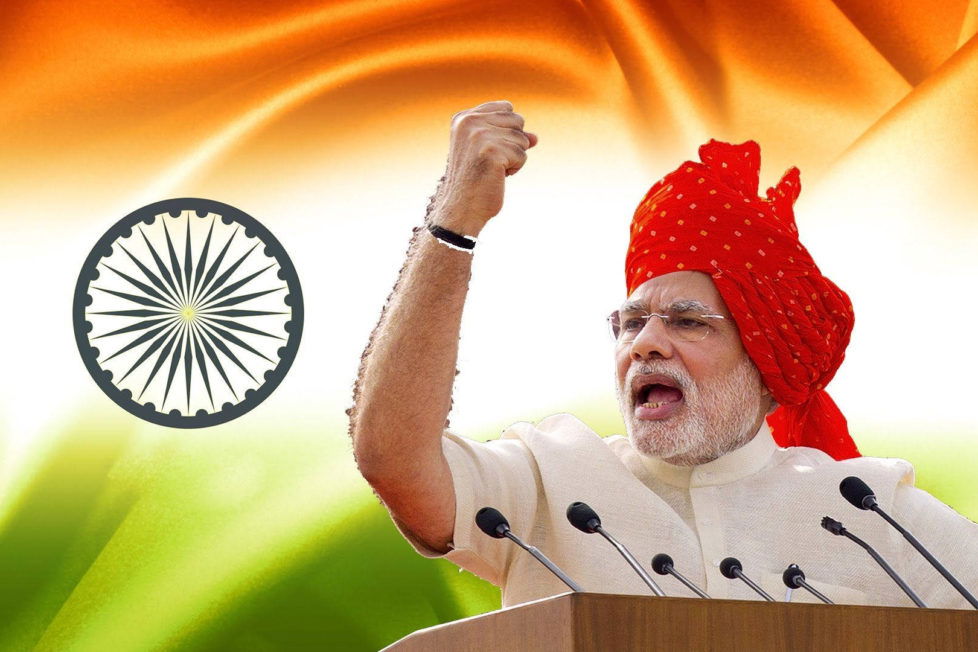

Prime Minister Shri. Narendra Modi completes 23 long years of public service, having risen from the position of Chief Minister of Gujarat to the peak of governance of the largest democracy in the world. His leadership has translated his unflinching commitment to development and governance into reshaping our nation’s socio-economic landscape.
When PM Modi took charge as the Chief Minister of Gujarat on October 7, 2001, it was against a terrible backdrop. It was during the recovery phase of the state that was devastated by the Kutch earthquake. Along with infrastructure, he had the task of rebuilding public trust too. His approach thus was characterized by a hands-on style of governance. He famously visited affected areas, engaging with citizens and ensuring that relief efforts were effective and timely.
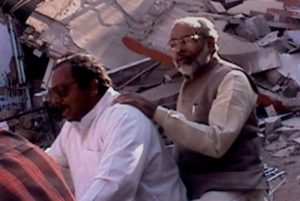
This early experience laid the foundation for his belief in Jan Bhagidari, or citizen participation in governance, a principle that would guide his policies throughout his career.
One of PM Modi’s hallmark initiatives during his time in Gujarat was the Sujalam Sufalam Yojana, a comprehensive water management program that transformed the state from water scarcity to surplus. This initiative was not just about irrigation, it represented a holistic approach to resource management.
The success of this program became a blueprint for the Jal Jeevan Mission, aimed at providing tap water connections to all rural households across India by 2024. Such visionary projects reflect PM Modi’s understanding of grassroots needs and his ability to translate them into large-scale policies.
His chief-ministership also initiated the Jyotigram Yojana, which provided 24-hour electricity to all villages in Gujarat. The scheme significantly enhanced living standards of the people and boosted economic growth because industries could now be established in areas that could otherwise not be benefited by electricity.
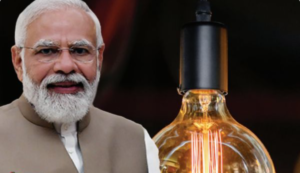
The model proved so effective that it inspired the national Saubhagya Scheme, targeting universal household electrification across the nation.
When PM Modi transitioned to national politics in 2014, he carried with him a wealth of experience and a proven track record of governance. His election marked a historical moment for our nation: for the first time in 3 decades, a single party could win an absolute majority in the Lok Sabha. This mandate enabled him to translate his vision and ideas on the national scale, focusing on economic reforms, infrastructure development, and social welfare.
The introduction of the Goods and Services Tax (GST) in 2017 stands out as one of PM Modi’s most ambitious reforms.
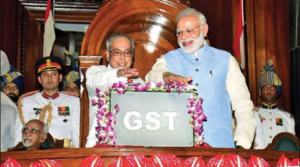
By unifying India’s fragmented tax structure into a single system, GST aimed to simplify compliance for businesses and enhance revenue collection for the government. While its implementation faced challenges, the long-term benefits are evident in increased ease of doing business and improved tax compliance across sectors, showcasing PM Modi’s commitment to economic reform.
The Swachh Bharat Abhiyan (Clean India Mission), launched in 2014, showcases PM Modi’s commitment to public health and sanitation. This campaign galvanized communities, emphasizing participation and leading to the construction of millions of toilets nationwide. By striving to eliminate open defecation, PM Modi has improved public health and empowered women, demonstrating that true development begins with dignity and safety for every citizen!
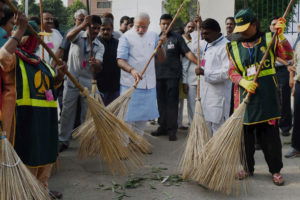
Digital transformation is another cornerstone of PM Modi’s leadership, epitomized by the Digital India initiative, which has expanded internet access and digital literacy across rural areas, fostering innovation and entrepreneurship. The introduction of the Unified Payments Interface (UPI) has revolutionized digital transactions, positioning India as a global leader in real-time payments—a feat that many nations now aspire to replicate.
On the global stage, PM Modi has orchestrated a dynamic and strategic approach to diplomacy, deftly balancing relationships within groups like the Quad and BRICS. Under his leadership, India has emerged as a key player in shaping the geopolitical landscape, emphasizing cooperation and collaboration among nations. His vision has transformed our nation into a bridge between diverse cultures and economies, which was visible in the G20 Summit held in New Delhi, where PM Modi brought together world leaders to address pressing global challenges—climate change, economic recovery, and digital transformation. Further, in an era marked by geopolitical tensions, PM Modi has distinguished himself as a leader who seeks to resolve conflicts rather than exacerbate them.
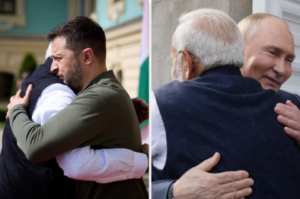
While the world is grappled with strife and divisions are solidifying around the Russia-Ukraine conflict, he took the bold step to visit both the nations to engage with their respective leaders, demonstrating India’s potential as a mediator in turbulent times.
As the COVID-19 pandemic unfolded, PM Modi faced one of his greatest challenges. In response, he launched the Atmanirbhar Bharat (Self-Reliant India) campaign—a vibrant manifesto for resilience and creativity.
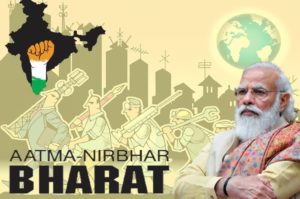
This was beyond a mere response, it celebrated India’s spirit, urging citizens to tap into their skills and local resources. Like a phoenix rising from the ashes, Atmanirbhar Bharat invited every Indian to innovate, adapt, and contribute to a self-sufficient future, transforming adversity into opportunity.
Healthcare has also seen great progress under PM Modi’s leadership, particularly with the Ayushman Bharat scheme, or PM Jan Arogya Yojana, which ensures that over 50 crore of the most vulnerable Indians have access to quality healthcare services.
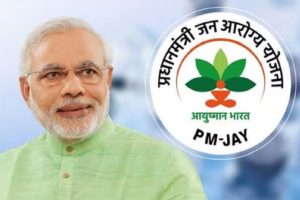
Moreover, PM Modi’s monthly radio program, Mann Ki Baat, has served as an important and dynamic platform for connecting with the public, wherein citizens can share their concerns and success stories, fostering a sense of community and participation in governance.

Such dialogue has cultivated a sense of unity and empowered individuals, reinforcing the principles of democracy and reminding us that every voice matters.
Ultimately, PM Narendra Modi’s 23-year journey embodies transformative leadership grounded in vision and pragmatism. His ability to connect with citizens and world leaders, coupled with an unwavering focus on development and welfare, has redefined governance. As he champions our collective mission of Viksit Bharat, it is clear that his legacy will be one of dedication, resilience, innovation, and a lasting commitment to uplifting every citizen of our great nation!
DISCLAIMER: The author is solely responsible for the views expressed in this article. The author carries the responsibility for citing and/or licensing of images utilized within the text.
